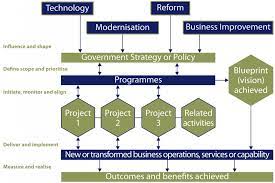Thriving Through the Teenage Years: Navigating Challenges and Embracing Growth
The Teenage Years: Navigating the Challenges and Celebrating the Joys
Teenagers, often referred to as ‘teens’, are individuals between the ages of 13 and 19 who are in a unique phase of development. This period is marked by significant physical, emotional, and social changes as they transition from childhood to adulthood.
One of the key challenges that teenagers face is finding their identity. They are exploring who they are, what they believe in, and what values are important to them. This process of self-discovery can lead to conflicts with parents and peers as they assert their independence and seek autonomy.
Peer pressure is another common issue that teenagers encounter. They may feel pressured to conform to societal norms or engage in risky behaviours to fit in with their peers. It’s important for teenagers to develop strong self-esteem and confidence to resist negative influences.
Academically, teenagers are faced with increasing responsibilities and expectations. They must balance schoolwork, extracurricular activities, part-time jobs, and social lives. This juggling act can be stressful, but it also teaches valuable time management and organisational skills.
Despite the challenges, the teenage years are also a time of great joy and excitement. Teenagers experience new freedoms and opportunities for personal growth. They form deep friendships, discover their passions, and begin to shape their future goals.
Communication is key during this stage of life. Parents, teachers, and other adults play a crucial role in supporting teenagers through their journey. By fostering open dialogue, understanding, and empathy, adults can help teenagers navigate challenges while celebrating their achievements.
In conclusion, the teenage years are a time of transformation and discovery. While there may be obstacles along the way, with guidance and support, teenagers can thrive during this pivotal stage of development.
Effective Strategies for Supporting Teenagers: Building Trust, Setting Boundaries, and Encouraging Growth
- Encourage open communication to build trust with your teen.
- Set clear boundaries and expectations to help them understand limits.
- Support their interests and hobbies to foster their personal growth.
- Teach them about responsible use of technology and social media.
- Encourage healthy habits like regular exercise and balanced nutrition.
- Be patient and understanding as they navigate through the challenges of adolescence.
Encourage open communication to build trust with your teen.
Encouraging open communication with your teenager is essential for building trust and fostering a strong relationship. By creating a safe space where your teen feels heard and understood, you can establish a foundation of trust that will encourage them to share their thoughts, feelings, and experiences with you. Open communication allows for honest conversations, mutual respect, and the opportunity to address any concerns or challenges together. Building this trust with your teen can strengthen your bond and support their emotional well-being during this critical stage of development.
Set clear boundaries and expectations to help them understand limits.
Setting clear boundaries and expectations is essential when it comes to guiding teenagers. By establishing firm guidelines, parents and caregivers can help teens understand their limits and make responsible choices. Clear boundaries provide a sense of structure and security, while also teaching teenagers about accountability and consequences. When expectations are communicated effectively, teenagers are more likely to respect rules and develop a sense of self-discipline. Ultimately, setting clear boundaries fosters a healthy environment for teens to grow and thrive during this crucial stage of their development.
Support their interests and hobbies to foster their personal growth.
Supporting teenagers’ interests and hobbies is crucial in nurturing their personal growth and development. By encouraging and actively engaging with their passions, parents and caregivers can help teenagers explore their talents, build confidence, and develop valuable skills. Whether it’s music, sports, art, or any other pursuit, providing a supportive environment for teens to pursue their interests can lead to a sense of accomplishment and self-discovery. This encouragement not only fosters creativity but also helps teenagers build resilience and a strong sense of identity as they navigate the challenges of adolescence.
Teach them about responsible use of technology and social media.
It is vital to educate teenagers about the responsible use of technology and social media. In today’s digital age, young people are constantly connected online, which can have both positive and negative impacts on their well-being. By teaching them about digital etiquette, privacy settings, online safety, and the importance of balance between screen time and real-life interactions, we can empower teenagers to make informed decisions and navigate the digital world responsibly.
Encourage healthy habits like regular exercise and balanced nutrition.
Encouraging healthy habits such as regular exercise and balanced nutrition is crucial for teenagers as they navigate the challenges of adolescence. Physical activity not only helps maintain a healthy weight and boost energy levels but also enhances mood and reduces stress. Pairing exercise with a balanced diet rich in fruits, vegetables, whole grains, and lean proteins provides essential nutrients that support growth and development. By instilling these habits early on, teenagers can establish a strong foundation for lifelong health and well-being.
Be patient and understanding as they navigate through the challenges of adolescence.
It is essential to be patient and understanding as teenagers navigate through the challenges of adolescence. This period of transition can be tumultuous as they grapple with identity formation, peer pressure, and academic responsibilities. By offering support, empathy, and a listening ear, adults can help teenagers build resilience and confidence as they journey through this transformative phase of life.



